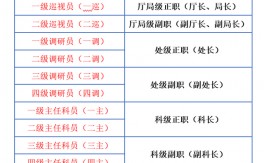六級(jí)作文結(jié)尾
六級(jí)作文的結(jié)尾通常需要簡(jiǎn)潔明了地總結(jié)全文,并重申你的觀點(diǎn)或建議。以下是一些常見(jiàn)的結(jié)尾方式:
1. 總結(jié)式結(jié)尾:

- 通過(guò)重述文章的主要觀點(diǎn)來(lái)結(jié)束你的作文。
- 例如:“In conclusion, the importance of a healthy lifestyle cannot be overstated. It is our responsibility to take care of our bodies and minds to ensure a productive and fulfilling life.”
2. 建議式結(jié)尾:
- 提出一些建議或解決方案。
- 例如:“To address this issue, it is imperative that we take immediate action. We should start by educating the public about the benefits of a balanced diet and regular exercise.”
3. 展望式結(jié)尾:
- 對(duì)未來(lái)進(jìn)行展望,表達(dá)希望或期待。
- 例如:“As we move forward, it is my hope that society will place a greater emphasis on mental health, recognizing it as an integral part of overall well-being.”
4. 引用式結(jié)尾:
- 使用名人名言或諺語(yǔ)來(lái)結(jié)束文章。
- 例如:"As the saying goes, 'Health is wealth.' Let us all strive to maintain a healthy lifestyle for a better tomorrow."
5. 反問(wèn)式結(jié)尾:
- 通過(guò)提出問(wèn)題來(lái)引發(fā)讀者的思考。
- 例如:"Is it not time for us to reconsider our priorities and invest more in our health?"
6. 強(qiáng)調(diào)式結(jié)尾:
- 強(qiáng)調(diào)文章中提出的關(guān)鍵點(diǎn)。
- 例如:"In summary, the significance of environmental protection is paramount. It is a duty that falls on each of us to safeguard our planet for future generations."
記得以下是一些常用的高級(jí)句型:
1. 使用定語(yǔ)從句:
- This is the book which I bought yesterday.
- The man who is standing at the gate is my uncle.
2. 使用狀語(yǔ)從句:
- Although he is young, he is very experienced.
- Unless we act now, we will miss the opportunity.
3. 使用虛擬語(yǔ)氣:
- If I were you, I would study hard.
- It's high time that we took action to protect the environment.
4. 使用倒裝句:
- Only by working hard can we achieve our goals.
- Not until we lost it did we realize the importance of the environment.
5. 使用強(qiáng)調(diào)句:
- It is not wealth but health that matters most.
- What impresses me most is his kindness.
6. 使用非謂語(yǔ)動(dòng)詞:
- Having finished the work, he went home.
- To achieve success, one must work hard.
7. 使用比較級(jí)和最高級(jí):
- The more you practice, the better you will be.
- Of all the students, he is the tallest.
8. 使用并列句:
- He not only studies hard but also helps others.
- The city is not only beautiful but also clean.
9. 使用條件狀語(yǔ)從句:
- If you work hard, you will succeed.
- As long as you persevere, you will overcome the difficulties.
10. 使用讓步狀語(yǔ)從句:
- Despite the heavy rain, we continued our journey.
- Even though he is old, he is still energetic.
11. 使用形式主語(yǔ):
- It is important to learn English well.
- What matters most is not what you say, but what you do.
12. 使用插入語(yǔ):
- Frankly speaking, I don't agree with you.
- Generally speaking, dogs are more loyal than cats.
13. 使用雙重否定:
- I can't agree with you more.
- There is no reason why you shouldn't try.
14. 使用被動(dòng)語(yǔ)態(tài):
- The book was written by Mark Twain.
- The problem will be solved soon.
15. 使用疑問(wèn)句:
- How can we solve this problem?
- What do you think about the issue?
使用這些句型時(shí),注意語(yǔ)法的正確性和上下文的適宜性,以確保文章的流暢和邏輯性。
英語(yǔ)六級(jí)作文萬(wàn)能金句
英語(yǔ)六級(jí)作文中,使用一些萬(wàn)能金句可以提升文章的表達(dá)效果和語(yǔ)言的豐富度。以下是一些常用的金句,你可以記得要與文章的主題和內(nèi)容相匹配,確保文章的連貫性和邏輯性。

 微信掃一掃打賞
微信掃一掃打賞





